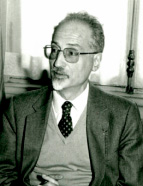

This line of research, combined with his method of “systematically comparing the chronicles with data from different archive documents” (Geneviève Bouchon, “Introduction”, in: Le Latin et l’Astrolabe , 2000: p.10), enabled Aubin to make an important contribution to political and social studies of the reign of King Manuel I through articles that broadened and renewed knowledge about historical figures such as Duarte Galvão, Vasco da Gama and Damião de Góis. All these figures from 15th and 16th century Portugal thus appeared in our historiography “from a new perspective, with their families, possessions, prestige for services rendered or secrets of their past” (Ibid.). The book Le Latin et L’Astrolabe (1996-2006), published on the initiative of the Calouste Gulbenkian Foundation and the National Commission for the Commemoration of the Discoveries, is fundamental in this regard for gauging the exhaustive work carried out by Aubin in the archives of the Portuguese court and nobility.
The first two volumes of the work bring together all the articles written by the historian since 1959 on the history of Portugal in India, while the third volume, published posthumously in 2006 and organised by Luís Filipe Tomaz, brings together Aubin’s studies dedicated to King João II, as well as the opening chapters of the biography of King Manuel I, which the scholar was unable to finish as he passed away in 1998. Finally, Le Latin et L’Astrolabe also illustrates Aubin’s constant interest in the comparative history of the Persian Empire and the Luso-Indian world, an interest that led him to create the journals Mare Luso-Indicum (1971-1980) and Le Monde Iranien et l’Islam (1971-1974). In this way, in addition to his decisive contribution to studies on the Portuguese presence in India, Aubin explored and demonstrated the undeniable capacity of Portuguese archives and chronicles to account for social and economic realities that escape Eastern sources and, in doing so, “provide a more accurate picture of the religious and political expansion of Islam in the Indian Ocean countries, of which the Portuguese were prolific witnesses” (Ibid.).
This work is financed by national funds through FCT - Foundation for Science and Technology, I.P, in the scope of the projects UIDB/04311/2020 and UIDP/04311/2020.
